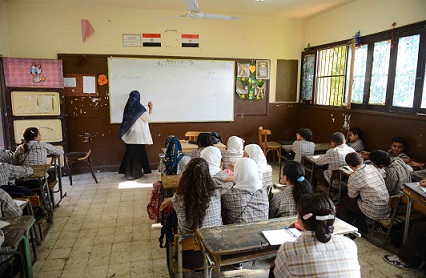CAIRO: While operations never shut down for the call centers of Xceed, according to CEO Adel Danish, the company “operated on a smaller scale” and not all accounts were active and running.
Xceed is a homegrown multi-lingual Business Process Outsourcing (BPO) company with two facilities in Egypt, including its headquarters in Smart Village, and one in Morocco as well as a few back up facilities in Egypt.
There are currently about 2,500 employees in Cairo — each generating an average of $20,000 — in addition to another 100 in Morocco. The company provides about 55 percent of services to offshore, about 35 percent of services to Egypt and about 65 percent to Europe, United States and the Gulf, said Danish.
An estimated three million transactions per month are managed by Xceed.
“We provide services for many companies such as Microsoft, Cisco Systems, Videotron, which is the top cable and phone operator in Canada and Du, a UAE based telecom operator,” said Danish, explaining that they provide technical support for customers and customer care.
High risk
The sector, as many others, has been affected by the recent events.
“Stability was a big appeal [for investors] and we lost that over the past weeks, but once we regain confidence again, we will be back on top with potential customers and investors coming back because they are hesitant now with the relatively high risk,” he said.
“It’s like tourism, which is very much affected by perception,” he added.
Danish explained that the company’s main focus during the events were the safety of their employees, who are transported daily from their homes to the facility as a service offered, but that fear of safety during a brief period was of great concern, especially with the complications of curfew.
“We had booked hotel rooms in October City for employees due to the curfew, but they chose to spend the night at the facility for multiple nights; that’s loyalty and commitment which we are grateful for,” said Danish of about 800 employees.
The employees kept the country’s emergency hotline 123, partially run by Xceed and partially by the Ministry of Health, operating around the clock responding to distress calls.
An average of 60,000 calls were received daily during this period, with a peak of more than 83,000 calls taken on January 31, 2011. The calls included medical emergencies as well as calls of looting from citizens that were then passed on to the army.
Projected revenue for the company is expected to be adjusted downwards due to the events, but exact figures were not available.
Moving forward, Danish says various ways have been discussed to advance the company past the current situation, adding that “the worst is behind us.”
“We have put in place contingency plans to make sure operations are not disrupted in the future like they were in the past weeks and will also focus more on local markets in an effort to compensate for international market that has been lost,” he said.
“Building alliances with other call centers located in other countries that have more stability will send a message to our customers and clients that we have back up plans in place and are prepared for the future.”
As far as the future of the industry in Egypt, Danish has an optimistic outlook on the situation “if Egyptians continue to show their commitment and positive spirit like they have in the past few weeks, the sector will be on the right path and booming once again in three to four years time.”
“The call centers are mainly young Egyptians, just like the ones that were in Tahrir, and the outside world can convey their support by not pulling accounts and taking away businesses from this country because the young generation will be disappointed after working so hard and taking risks,” Danish said in a message to customers and clients.
“People realize that we are going through tough times, but sticking through it with the people will only bring the industry back stronger because at the end of the day, if business is taken away, jobs will be lost.”
Outsourcing
In the past years, Xceed has been ranked by analysts in the top for IT outsourcing and call centers holding places four, five and six.
“We weren’t one of the first to get into this field and capitalize, India and Ireland really were the pioneers about 20 to 30 years ago,” Danish said.
“It really started in 2003 here in Egypt mainly to Europe initially as a result of the multilingual capabilities of Egyptians,” he added.
Services are offered in at least 10 different languages, mainly Arabic, English, French, Spanish and Italian.
“We are in the same time zone and only a few hours away from Europe so it is easier to do business with us than other countries like India and the Philippines on top of our excellent communication infrastructure we have,” Danish said of their appeal to clients.
He attributes the many reasons of success in the sector in Egypt to the human resources with a large pool of talent that is well educated and accessible at a relatively low cost.
“This country has about 300,000 graduates every year with almost 20 percent being very well educated, which really helps our choices to have employees with this talent,” says Danish, adding that the multi-linguistic young Egyptians also adds to the appeal.
Danish also believes a major attraction of the sector in Egypt is the telecommunications infrastructure in place.



